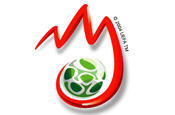In the absence of the home nations, we are unlikely to see as many UK brands attempt to ally themselves to football in the same way as did during Euro 2004 in Portugal.
'Football-related marketing will be down by as much as 80%,' says Steve Martin, chief executive of M&C Saatchi Sport & Entertainment. 'There will be a certain level of exploitation from official sponsors, but it will be much shorter than the three- or four-month campaigns we might have expected.'
For the signature sponsors, all of which are global brands, there is an opportunity to make the most of their association in countries still in the competition, according to Nigel Currie, director at Brand Rapport. 'They will have known that they were always going to lose two or three markets in the qualifying (rounds),' he says. That said, Currie agrees that Euro 2008 does not have the same appeal for domestic marketers. 'It boils down to ratings - about 16m people watched the Champions League Final, and you get that amount for England matches in a major tournament.'
Nonetheless, with the absence of a glut of football-related marketing, it seems that brands with traditional links to the game can still cash in. Rather than having to compete with every conceivable rival hoping to hitch themselves to the passing bandwagon, they have a unique chance to gain some differentiation with their campaigns.
According to Simon Lincoln, a senior research executive specialising in sports and sponsorship at research firm Ipsos MORI, a carefully targeted campaign is capable of making a big impact. 'There is still an argument for football marketing in the UK,' he says. 'Brands have shifted budgets away from the UK, but if, say, Coca-Cola offered the chance to go to Euro 2008, people would sign up.'
One brand going ahead with football-themed promotional activity is Mars. Having encouraged England supporters to 'Believe' during the 2006 World Cup in Germany, it now vows to 'Get Britain Playing' with its on-pack ball giveaway.
More crucially, it has been suggested that, given the success of the Premier League and its foreign superstars, the UK may be one major European market able to withstand the lack of direct representation at the tournament.
Brands are optimistic that Liverpool fans, for example, will follow the fortunes of striker Fernando Torres and the Spanish team, while Manchester United supporters will be interested to see how Portugal's Cristiano Ronaldo fares .
Vijay Solanki, head of marketing services for Europe at Castrol, making its debut as an official UEFA sponsor this year, believes Euro 2008 provides brands with a chance to communicate directly with British fans. 'More than 20% of Premier League players will be present, and the broader appeal of football is still relevant,' he says.
'Football is naturally big in the UK and the competition will be more for the fanatics, which goes well with our marketing,' Solanki adds, referring to the oil company's Euro 2008 Performance Index, a website that collates statistical data on players during the competition.
Of the official sponsors, beer brand Carlsberg has put together the most UK-facing marketing, including a TV ad and online guide for British fans travelling to Austria and Switzerland. Adidas is rolling out a global campaign featuring stars such as Kaka, Lionel Messi and David Beckham, while Canon has unveiled a more generic football TV ad.
McDonald's is also targeting dedicated fans, by sponsoring UEFA's official Euro 2008 Fantasy Football game, and JVC is backing UEFA's Euro 2008 Predictor. Meanwhile, some official sponsors, including Mastercard, Kia and Continental, are simply running competitions in the UK to win a trip to Euro 2008.
But the smart money, for both official and opportunist brands, may be on playing the waiting game. Martin believes that brands should hold back until the autumn, when England, under new head coach Fabio Capello, and the other home nations embark on their qualification campaigns for the 2010 World Cup in South Africa.
'Money is being put away in the locker and brands will be planning around the qualifiers for 2010, ready for the big-interest events,' he says. 'That's what I'd be recommending my clients to do.'


